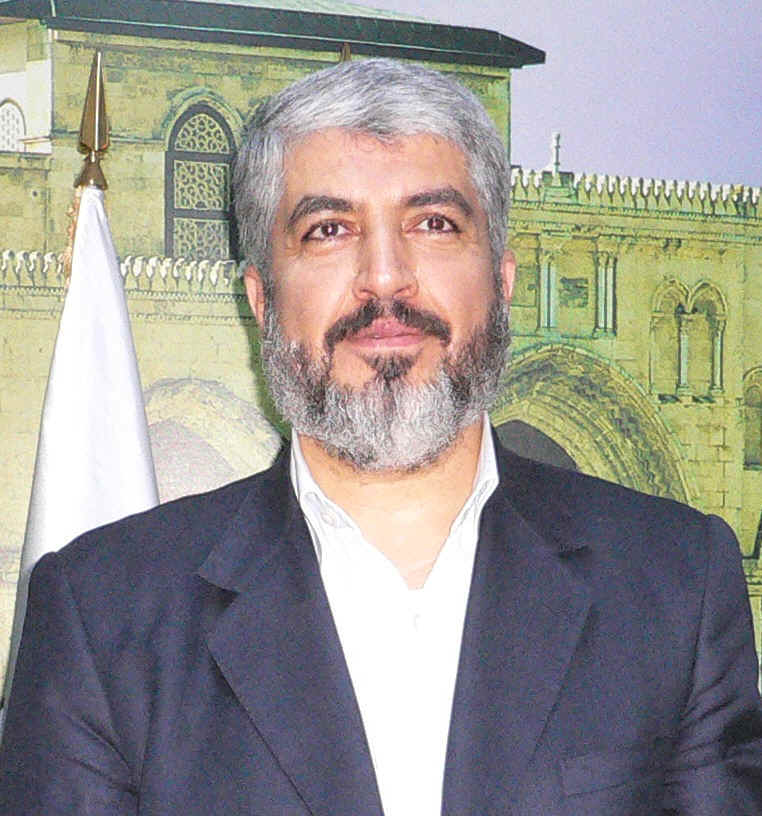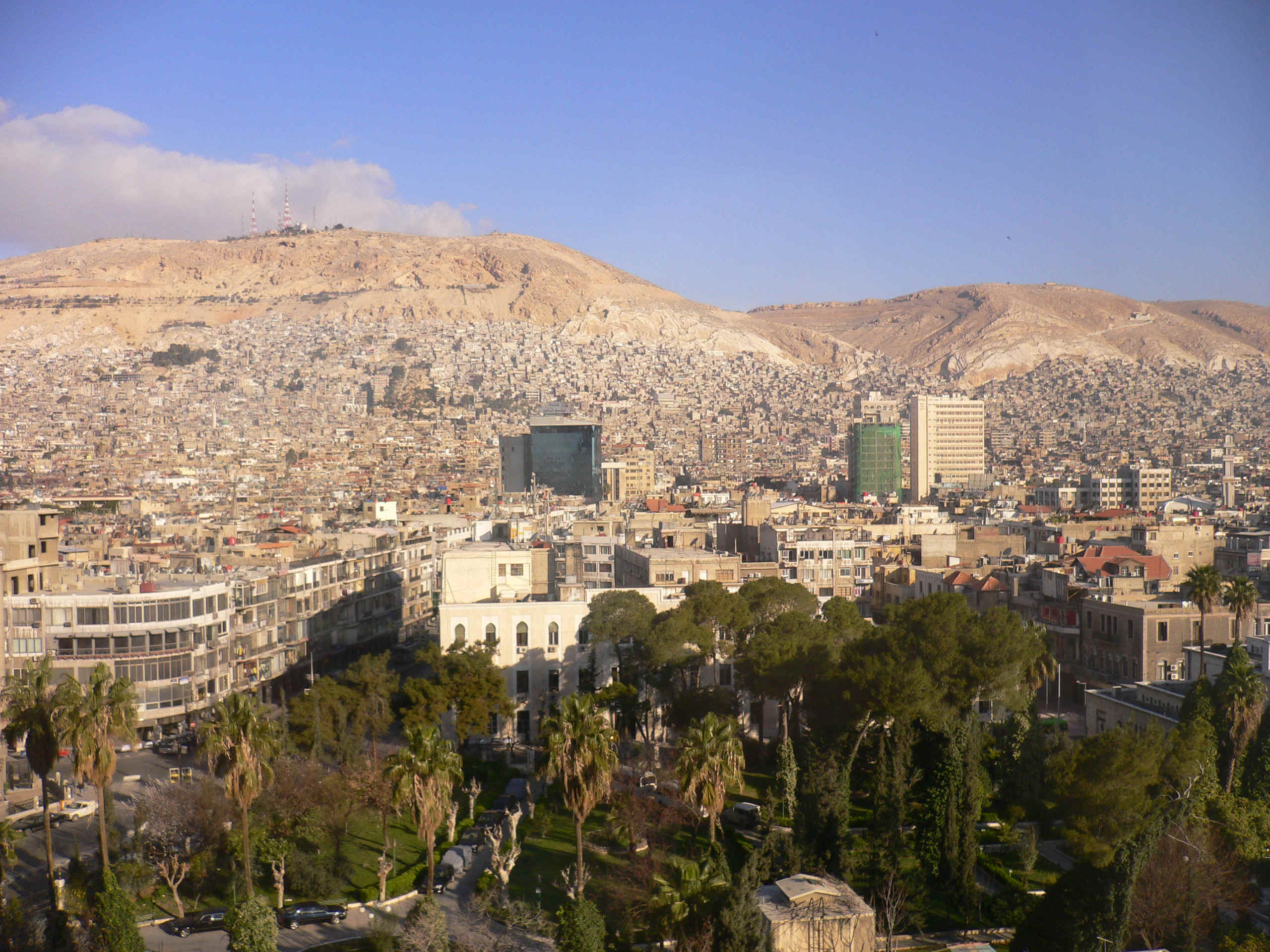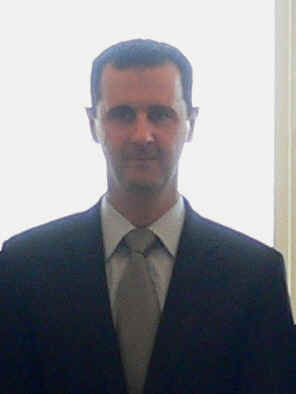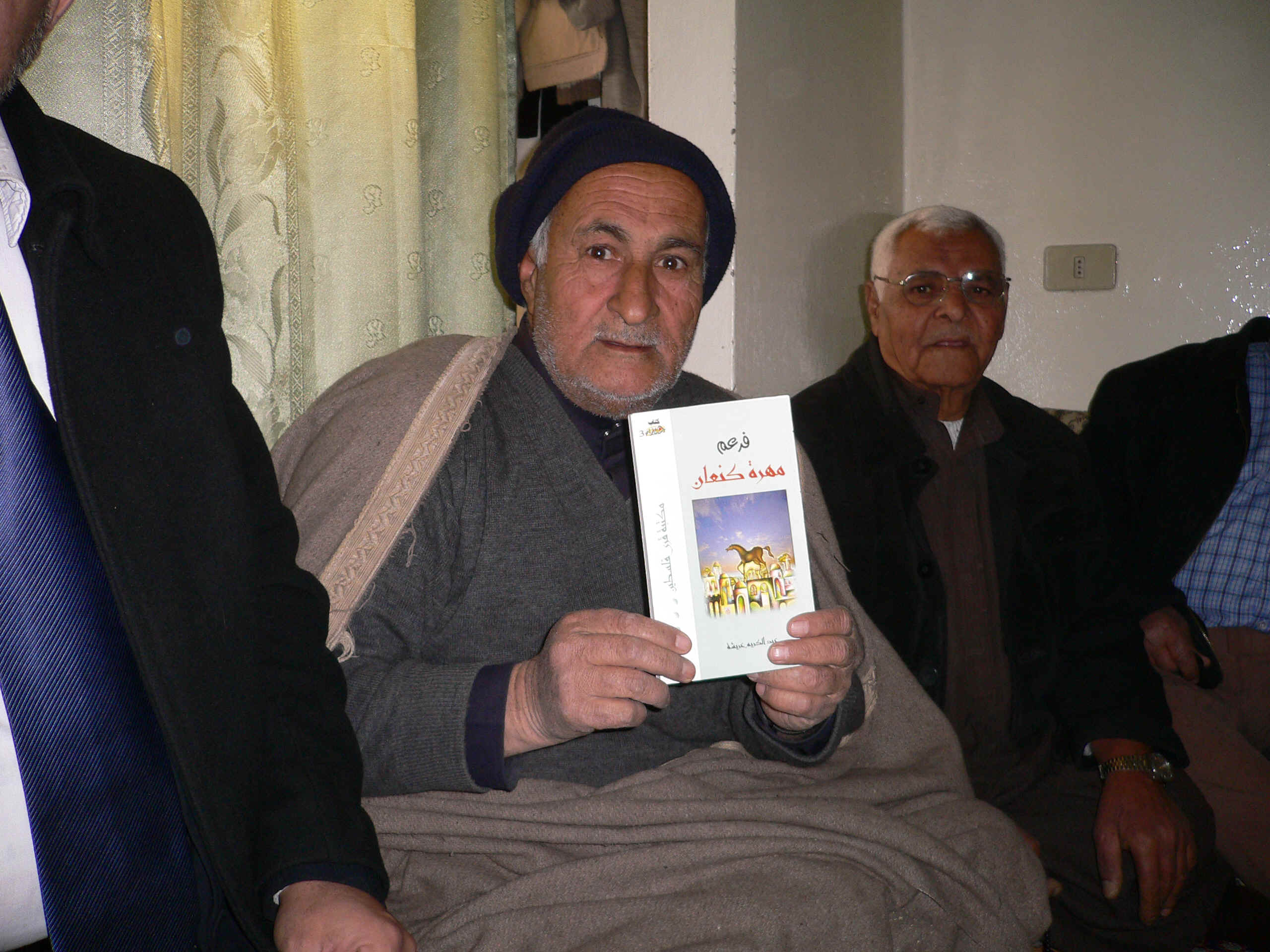Delegation of British and Irish Parliamentarians to Damascus,
Syria
15/16
March 2009
NOTES OF
MEETINGS
Throughout our discussions, I felt that the people
we spoke to gave honest accounts of their views and I hope I have represented them
accurately. This account is not an expression of my own views (except where
indicated in italics) and is presented as an aid to the understanding that is necessary to
bring peace. I would welcome a similar dialogue with Israeli groups and other Palestinian
factions. At the end of the visit, the delegation was strongly of the view that the UK and
EU should recognise Hamas as legitimate leaders of the Palestinian people and act
accordingly in the pursuit of peace.
Lynne Jones MP
The delegation consisted of:
Chris Andrews (Irish parliament); Lynne Jones MP; Bness Lindsey Northover; Pauline McNeil
MSP; Clare Short MP; Bness Jenny Tonge; Sandra White MSP; Lord William Wallace
Non parliamentarians: Arafat Shoukrit and Daud Abdullah
The meetings the delegation undertook:
Khaled Meshaal (General Chief of Staff, Hamas)
Ahmed Jabril and Talal Naji, Secretary General and Deputy Secretary General of the
Popular Front for the Liberation of Palestine
Ramadan Shallah, Leader of Islamic Jihad
President
Bashar al-Asad
Other Meetings and Conclusion
Khaled Meshaal (General Chief of Staff, Hamas)

When asked about the founding charter of Hamas from August 1988,
which states that the land of Palestine is consecrated for future Muslim generations until
Judgement Day and that Palestine can only be liberated by Jihad, he said that this was
written as the world was seen then and Hamas should be judged on the basis of what they
do, not what was written 20 years ago. ”It
is a historical document representing a phase in our history, not a manifesto of our
current political program”. When they won
the election in 2006 Ismail Haniya’s programme led to the reconciliation agreement
with Fatah. The Mecca agreement was a national
agreement to accept a Palestinian state on the territories occupied by the Israelis in
1967 on the basis of self-determination and independence.
The Quartet (UN, USA, EU and Russia) should accept these
realities. When I asked whether this was the
same point of view expressed to their own people, he said that they “do not speak in
two languages, the world is a village and would soon find out”.
Arafat had recognised Israel on the basis of the pre-1967 borders and
repudiated parts of the PLO charter but the same state poisoned Arafat to hasten the
appointment of Abbas. (This was a point of view expressed by others we met.) However, four years later, what progress has
been made? Even before his appointment, new
settlements were announced.
Israel does not genuinely want peace.
Palestinians believe sincerely in peace and all religions have lived in
peaceful coexistence. Jerusalem was a model of
all faiths living harmoniously together. The
fact that the Palestinian people exercised their right of resistance to the occupation
does not mean that they do not want peace. But
so far, the negotiations have not led to peace.
The siege of Gaza continued after we had given the Israelis a truce
and yet the Israelis expected the truce to be renewed without lifting the siege. He said he had told Jimmy Carter that if the siege
was lifted, they would end hostilities. The
siege is an act of war, people who die slowly through hunger or lack of medical treatment
still die. Discussions are continuing, through
the Egyptian negotiations, to end the siege and Hamas has offered one and a half years of
ceasefire in return for the lifting of the siege. Though
Israel agreed in principle, Israeli internal politics meant that it was not delivered.
There was a great deal of pressure on Olmert to get Corporal (now Sergeant) Shalit released as he was captured
during Olmert’s administration. Hamas was
not opposed to releasing him but the ceasefire negotiations are on the basis of lifting
the siege and opening the borders. The Shalit
release negotiations are related to the release of “our” prisoners, though both
matters could be discussed in the negotiation. They
were two separate issues.
Just before the Israeli elections, a European interlocutor said
Olmert needed the release of Shalit. Hamas
responded that they were prepared to release him but they wanted release of their own
prisoners. Israel rejected everything as the
details were discussed. Israel gives
conflicting and misleading information to Europe and it was all a public relations
exercise.
Palestine reconciliation has begun in Cairo, but this is being
demanded as a prerequisite for reconstruction. Shouldn’t
we be attending to the needs of the people of Gaza and not this use as blackmail to force
agreements? Hamas have put forward reasonable
proposals for reconstruction. Hamas want to
serve the people but nevertheless are not insisting on funds going to the Government but
are happy that the work should go through NGOs. There
is a reconstruction committee of all the factions but still no response from the
Palestinian Authority, Egypt and the other Arab states included in the Quartet. The Europeans and others encouraged Hamas to become
involved in the elections as they expected them to get only a minority vote and therefore
to be contained. When Hamas won the election,
those that advocated democracy subverted the electoral process and tried to undermine the
Government. He then mentioned a US General
Keith Dayton and said that he had courted other corrupt factions with weapons.
Note: I have since been referred to this article from Vanity
Fair http://www.vanityfair.com/politics/features/2008/04/gaza200804
When asked about the way forward, he said that the Hamas delegation
involved in the reconciliation talks in Cairo had been instructed to display maximum
flexibility and to address the five issues tabled. Under
pressure from the Quartet, the Palestinian Authority want to impose their own conditions,
going back on the principles enshrined in the 2007 (Mecca) agreement. These principles should be the basis of agreement
today.
He then referred to a statement made by Hillary Clinton (at Sharm al
Sheikh) recently in which she said that the agreement must involve the acceptance of the
Quartet conditions. He contrasted this with
the attitude to the Israeli Government. No
similar conditions were imposed on Israel such as in the agreements on forming coalitions. He was not advocating this but just contrasting the
treatment of the two. The Palestinian
Authority only want to address the situation in Gaza but not the West Bank.
The weak and corrupt Palestinian Authority gets power from
international approval. Without international
involvement, the Palestinians would be able to organise themselves based on democratic
principles. Corrupt elements would realise
that they do not have the support of the people, whereas the international dimension meant
that they used international approval as their powerbase.
This was a substitute for the support of the people.
Reference was made to Mitchell in Northern Ireland, as one of our
delegation is an Irish Member of Parliament and I also mentioned Mitchell’s role as a
mediator, helping to bring all sides together but not imposing upon them. Wasn’t it a good sign that Obama had appointed
Mitchell as his envoy? Khalid Meshal said that the success of Mitchell in Northern Ireland
was due to his engagement with all parties and was seen as impartial. So why does he not approach Hamas with the same
impartiality? Hamas is ready to engage with
him including over the issue of the missiles. There
has been no direct contact from Mr Mitchell. Hamas
will participate in Parliamentary elections and accept the results of democracy.
Chris Andrews said that the Irish constitution changed in the context
of a just settlement in the North. Would Hamas
consider changing their charter? In response,
Meshal said that if there was an acceptance of the Palestinian State on the 1967
boundaries, including East Jerusalem, with sovereignty and the right of return, the State
would develop its own constitution so there would be no need for any charter, whether of
Hamas or Fatah, as they would have a state constitution.
Hamas was arguing for the acceptance of this position and was the only
organisation that could convince the Palestinians that this was the way forward. He said that the Palestinians were the victims of
different views of Arab states. He said give
the Palestinians a year to come to an agreement, without outside interference, and they
could do so.
I asked for clarification of what he meant by ‘the right of
return’. In response, he pointed out that
Israel allowed any Jew from the Diaspora to come to Israel and gave them a home after
being away for at least 2000 years but Palestinians displace from their homes only 60
years ago were not being allowed to return.
He said that he thought that Islamic Jihad would not participate in a
National Unity Government but would treat it with respect (see view from Islamic Jihad below). Fatah is seen as a corrupt party that has failed in
the objective of achieving a Palestinian state. He
contrasted this with the success of Hamas in providing services for the people, success in
elections, standing up to Israeli aggression and acting as a trustee of Palestinian human
rights.
I asked about the instance when Hamas expelled Fatah from Gaza. He
said that Hamas had not expelled Fatah from Gaza but they had left themselves. Hamas would welcome the return of Fatah to Gaza and
they were negotiating with Fatah members from Gaza in Egypt.
Regarding the incident when a man was pushed out of a window, he said this
was in fact perpetrated by Fatah on a person they thought was Hamas because he had a
beard.
Note:.I was subsequently referred to a video in which a
spokesman of Fatah (Abu Khusa) stated that Hosam Abu Quinas Hosam, a senior leader of one
of Fatah’s factional districts, had been kidnapped by the Palestinian Presidential
Guard who, thinking he was Hamas because he had a beard, threw him from the 11th
floor of a building. Apparently such occurrences (identifying people with beards as Hamas
and punishing them) were commonplace.

The view from our Damascus hotel
I asked about his view of the role of women, pointing out that the
picture of Hamas leaders in the room was all men. Following
the preamble about women being complimentary to men and how they should play their full
role, he said that there had been women ministers in the Hamas Government and women were
on the Hamas ticket in the 2006 election. Talking
about the negotiations between Israel and Syria and the possibility that Hamas could be
expelled as part on an agreement, e.g. to return the Golan Heights, he said that the
Netanyahu agenda was to raise the standard of living of Palestinians in Syria and Jordan
as a substitute for giving back their land. He
was therefore unconcerned about Hamas continuing to have a base in Syria.
He said that they had just cause.
Half of the Palestinian people live under occupation, the rest are in the
Diaspora without a state. Palestinians aspire
to self-determination and to live in an independent state without aggression. Hamas believes in the democratic process, reform
and combating corruption. They want a genuine
peace without oppressive Israeli conditions and for the international community to respect
their rights and to give them the opportunity to exercise these rights. He referred to Britain bearing historical
responsibility for Palestinian suffering and said this bestowed a moral and legal
responsibility to assist in the peace process. Hamas
is serious about making peace. Peace is not
possible without Hamas, they have no problem with Jews or Jewishness and wanted to
transmit this conviction. He pointed out that
they wanted to live with people of all religions and pointed out that Christians were on
the Hamas ticket in the elections.
Ahmed Jabril and Talal Naji, Secretary
General and Deputy Secretary General of the Popular Front for the Liberation of Palestine
They are a secular group. They
suspended their membership of the PLO a year after the Oslo Accord. They felt that world opinion was shifting and cited
the academic boycott in the UK as evidence of this. They
spoke about the injustice to the Palestinians and the responsibility of our forefathers
for this, referring to Balfour and other historical details.
PFLP was not against Judaism as a religion and, in fact, said that
the Israeli “entity” was established not by religious Jews but secular Zionists.
He said all the people at the meeting were refugees and he had been
expelled at the age of 10 from his home less than 110km away. The Oslo Accord made no mention of the return of
refugees and surrendered the Palestinian cause.
PFLP had agreed to the June 2007 ceasefire, negotiated via the
Egyptians, but their view of the agreement was that this included an end to all forms of
aggression in Gaza including the closure of the borders.
In fact, PFLP had wanted the agreement to extend to the West Bank. He referred to Israeli violations, 28 people had
been killed in Gaza, 25 people in the West Bank and 260 people had died (in Gaza) because
they couldn’t get medical treatment, and many people were abducted and imprisoned in Israel. In other words, the Israelis did not comply with
their side of the bargain. Egypt had said that
the siege would be lifted within two months of the agreement. They had been wrongfully accused of not wanting a
ceasefire. In fact, they had agreed to a
second ceasefire that could be extended to 18 months but wanted it extended to the West
Bank and to the opening of all crossings based on the 2005 agreement on the Rafah
Crossings and the prisoner exchange. On these
matters, PFLP was in tune with Hamas and other factions.
They wanted to see the reconstruction of the Palestinian security apparatus,
however the Abbas delegation wanted a Government of technocrats with no Hamas Minister,
despite their success in the elections. The
four opposition factions (there are nine factions in support of Abbas) proposed a
Government from all the factions but would not insist on the most well-known
personalities. They also wanted to see the
death of the Oslo Accords. He pointed out that
the Abbas term-of-office had ended on 9 January 2009 and so he lacks legitimacy.
There was some confusion as to whether the PFLP wanted an early
election or whether they wanted to see the 2005 agreement that all the Secretary Generals
of the PLO factions would meet to begin the reconstruction of the PLO. There needed to be a new executive of the
Palestinian National Council, which had not met for 16 years. In the intervening period, half of the members had
died and many others resigned. He pointed out
that a third of the elected Members of Parliament are in Israeli prisons.
I asked about the legitimacy of his organisation, pointing out that
Hamas had their legitimacy from the results of the elections. He said their legitimacy came from their
involvement in the resistance and their history. They
were in the establishment of the PLO with Fatah. He
pointed out that the elections in the West Bank and Gaza only involved 4 million out of 22
million Palestinians, most of which were in the Diaspora.
In the elections, the PFLP had encouraged their supporters to vote for
“every good man”, including Hamas candidates.
Ramadan Shallah, Leader of Islamic Jihad
A Library paper on the Anapolis
negotiations (dated 13 April 2008) prepared for me, had quoted information from an article
in the Independent that Islamic Jihad was a more radical rival to Hamas (in the context of
their having launched Quassam rockets at the Israeli town of Ashkelon, in response to
Israel having killed four militants in Gaza on the 12 March).
Ramadan Shallah said that he had been born in Gaza in 1958 and got
his degree at the Islamic university of Gaza. He had gained his PhD in Economics at Durham
University and in 1991 he went to the University of Florida.
In the UK he had done political work supporting the Intifada and he was
chosen to take over as Secretary General of Islamic Jihad after the former leader was
assassinated by Mossad on his way back from Tripoli (in Libya). Jihad meant ‘armed resistance’ and he
said that the Palestinians had a legitimate right to resist the Israeli occupation. However, he pointed out that they had no connection
with other groups calling themselves ‘Islamic Jihad’; they were only concerned
with resisting the occupation of Palestine. As
part of the resistance movement, they could not engage in politics. However, they accepted the truce but considered
this was violated by the Israelis.
Since the Oslo Accord, settler numbers had grown from 100,000 to
200,000 and, if East Jerusalem was included, to 500,000.
He said that there was no land left to establish a state in the West Bank
except in the desert. He pointed out that if Gaza
were to declare itself an Islamic state it would receive international opprobrium, yet Israel
was accepted as a Jewish state. They would be
happy to live alongside Jews; the conflict was nothing to do with religion. They were not like Al-Qaida and were only looking
for self-determination within their own territory.
When asked if he would express these views publicly, he said that, if
he did, his words would be taken but they would “give us nothing”.
Islamic Jihad did not accept the two state solution, he said that you
can’t build hope on a mountain of failures and he wants to see the world standing up
for Palestinians as they did against apartheid in South Africa. Nevertheless, Islamic Jihad was helping the
negotiations in Cairo and wanted to see Hamas and Fatah come to an agreement. He said “we are all Palestinians, we are not
going to fight against other factions if they make progress”.
He had a chilling analysis of the possible way things could go. He pointed out that the imbalance of power meant
that there had not been a peace process between the Arabs and Israelis but the Arab states
had signed treaties agreeing to recognise Israel. Thus
the Arab-Israeli dispute had been transformed into a Palestinian-Israeli dispute. However, people in those Arab states were going
back to the root of the struggle and were rejecting Israel.
These developments were being used by the likes of Al-Qaida, whose interest
were not those of Hamas and Islamic Jihad, which just wanted self-determination in their
own country. He referred to an article by
Martin Kramer, which also foresaw similar tendencies pointing out that this was no longer
an Arab-Israeli issue but was being used by Islamists who wanted to see the return of the
Caliphate. (He did not use these words, this is my
interpretation.) He pointed out that
relationships with Hezbollah and Iran, which was not an Arab state, and sympathy for the
Palestinians in countries like Turkey was being used by Al Qaida. He described suicide bombings as a “last
resort”.
President
Bashar al-Asad

We
did not know we would be meeting the President until after we arrived in Syria. I have met heads of state on previous delegations
and these have always involved waiting in a room for the great man to enter. In this case, the President personally welcomed us
as we arrived. He gave us nearly two hours of his time and was eager to answer even
critical questions.
The President of Syria began by saying that
it was important to deal with the reality on the ground and not labels. “Solutions start with goodwill at popular
level and, as human beings, we cannot be isolated from what has happened in the past. Syrians had been eight months in talks with the
Israelis and the return of the Golan Heights was symbolic as to whether the Israelis want
to make progress. He felt that the Israelis
are not ready for peace and that the Government reflects Israeli society and does not want
to work to convince their people that peace with the Palestinians would be good for
everyone. He felt he has the support of the
Syrian people in trying to find a peaceful settlement but not any peace. He felt it was not helpful to have any
pre-conditions. There were obstacles to peace
and he preferred to talk about requirements, including the implementation of UN Security
Council Resolution 242. There was an important
role for Europeans, particularly in pursuing the 1991 Madrid ‘Peace for Land’
process. He accepted that Europeans were
partners with the US but whoever was US President, whether given the label
‘good’ (I assumed implying Obama) or
bad (implying Bush), they all have obstacles to
what they can achieve. Syria had been hopeful
that Blair would be able to use his influence with the US but he didn’t exercise any
influence in practical terms. He felt that
there had been progress in British policy and particularly cited the recently announced
willingness to have talks with Hezbollah. He
also cited the attitude of David Miliband when he visited Syria recently, he felt that
there was a real dialogue and that the British were listening and not dictating, unlike in
the Blair era when Britain always went along with US policy.
Referring to the situation in Gaza, he said anyone would want to
fight if their family was dying, there was nothing else they could do. The first issue was the need to discuss the
exchange of Corporal Shalit for 450 Israeli prisoners, but he also added that past
experience was that when one group of prisoners were released, more were then arrested.
The EU could have a role in guaranteeing the sustainability of any agreement. A peace
treaty is not necessarily the same as peace. The
mood now is bad on all sides but this would change if credible proposals could give hope. He castigated the attitude of the US who he said
regarded talks as a reward. Peace means normal
relations. Israelis only work on a short-term
basis and in a bilateral manner and not on a comprehensive basis. Whilst it is still
possible to have an agreement between Israel and Syria, this would not change the
relationship with the Palestinians. The Israelis didn’t seem to understand that
“cleansing” the Palestinians into Syria and Jordan would not give them peace.
The return of Arafat did not bring statehood but corruption.
Egypt was unwilling to lift the siege at Rafah because the siege
makes Hamas weak. (Note: Hamas were
an off-shoot of the Muslim Brotherhood who originated in Egypt.)
The “one state” solution in which the Israelis and
Palestinians lived together was not practical. He was opposed to a religious state.
On Hamas and Hezbollah bases in Syria: 10 leaders of Hamas came to Syria
as refugees and were not allowed to return. Should
he throw them in to the sea? Hezbollah, on the
other hand were free to go and were part of the Lebanese government.
Israel will only deal with the reality (implying their status as
regional power and support from US) and so were not serious about the two state solution. There is majority support for UN resolutions but Israel
just ignores them.
On relationships with Iran, he said that just because Iran supports Syria
over the Golan does not mean Syria supports Iran eg on the nuclear issue. Equally, Hamas should not be blamed if Iran supports
them. .(Note: Western aid was cut off to the Palestinian Council
after the Hamas victory in the Legislative Council elections and their refusal to accept
the Quartet conditions – see article from Vanity Fair above.) Eqypt was most influential in applying pressure
on “Palestinian unity” and, in turn, Egypt was influenced by the US. Saudi
Arabia used to have good relations with Hamas but have latterly come into compliance with
Western conditions – most of the so-called moderate states were dependent on
petrodollars.
The timescale for necessary actions to bring about peace was not
necessarily coincident with main priorities.
First it was necessary to work for peace and reconstuction in Gaza,
irrespective of relationship/recognition of Hamas, though it was importanrt to know what
to expect from them. (at this point he referred again to Miliband having said that there
should be no dictation but dialogue, contrasting this once more with the Blair era). Europe was waiting for Obama to take the
initiative. This was a mistake. The US is the most important player but Europe
needed to help Obama, not wait for him to give the lead, acknowledging the difficult
pressures he was under.
Hamas has changed. In effect they have accepted the two state
solution but this has come from within rather than from outside pressure – they had,
in effect, convinced themselves – they could not have been “cornered” into
compliance.
The Israeli elections were not about electing a “good”
leader but about whether a leader could emerge that had the strength to work for peace. His view was that the Israelis were not ready for
peace – the only leader that had come near it (Rabin) had been assassinated. He still felt we were in hopeful times – in
the long term Israel would learn the lesson that they would benefit from peace and the
encounter with Hezbollah had perhaps taught them that they were not all powerful. The West should help them in reaching that
conclusion.
We then went on to discuss internal Syrian affairs. When one of
our own delegation attempted to end the discussion at this point, the President was
anxious to continue.
He said he had never claimed they were perfect. Priorities were based on what was important for the
people. They were moving forward on openness and human rights but going too fast was
counterproductive. He mentioned accusations
that Syria had a nuclear programme and that the IAEA had cleared them – the small
amount of radioactivity found could have been planted by anyone.
After 9/11 and the invasion of Iraq, their priority was retaining
their sovereignty but since then they had been progressing cautiously. The internet was not yet fully opened but Wikipedia
had been opened a few months ago. He was
determined to continue progress and criticism, e.g. by Human Rights Watch, would not
affect the timescale, which had to reflect his Country’s realities – respecting
“traditional views”. He said that
something similar to the Da Vinci Code, easily accepted in the West, would have created
huge problems for his efforts to maintain a secular state.
He said that it was still theoretically possible to be sent to prison
for 3 years for insulting the President – something he felt he did not need, was not
used, but was difficult to remove. They did not put people in to prison for their
opinions. However, there were 1300 returnees
from Iraq in prison that had not been through due process due to lack of judicial
resources. One person had been released
following pressure from Canada and had turned out to be a terrorist.
I asked him about torture and he said that this was not in his
people’s culture. They were a peaceful people. There
had been numerous coup d’etats but only one person had ever been killed and that was
a mistake.
In hindsight, I regret that I
did not have the nous to ask him about the assassination of Rafiq al-Harari, the former
Lebanese Prime Minister. On doing my homework
when I returned to the UK, I read that the President had apparently warned Hariri that Syria
would not be forced out of Lebanon. In the
end, the assassination triggered a civic uprising that ended the 29 year Syrian occupation
– not an example of the cautious approach that the President advocated in our
discussions. Syria has denied any part in
Hariri’s murder. UN investigators
detected a trail leading to the arrest of four Lebanese generals, part of a single chain
of command originating in Damascus.
If you would like to read more about
President Bashar al-Asad and Syria, you may find this article
of considered analysis from the Financial Times on 11 May interesting.
Other
Meetings and Conclusion
We later visited Palestinian refugee camps. As the president told us, refugees have the same
rights as Syrian citizens other than the right to vote and have access to the same
healthcare and education.

Children in a Palestinian refugee camp in Syria
However, on arrival at the first camp, I was whisked off to do an
interview for Palestinian (Quds) TV. This was
quite a hair-raising experience as the driver was (unknown to me) on a tight deadline to
get me to the studios in time for a live interview and thought nothing of going the wrong
way to get on to a main road. Thus it was that
I missed most of the encounters with real people. However,
I was back in time for a meeting at this man’s house.
He is a retired teacher and is pictured with a book he wrote about the village from
which he was driven out in 1948.

Palestinian teacher with his book about the village he was forced to leave
He said he always dreamed of returning to the “most beautiful
place on earth”. Is he wrong to wish
this? Who are the terrorists – those that
drove him out or those that fight for his return? We
must go beyond the current “realities on the ground” to seek a just solution
without further bloodshed. Both sides are
dependent on huge financial transfers from the US and EU.
Isn’t it time we started to act in a more even-handed manner in terms
of the deployment of these resources?
back to Foreign Trips



